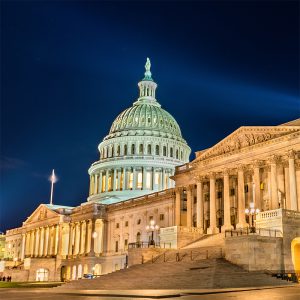Building Business Resilience to Tax Complexity and Uncertainty
For companies, taxes are a big deal. The sum that a private enterprise forfeits to the government every year is a major liability on any firm’s accounting ledger and can mean the difference between profitability and stagnation, growth and downsizing. Companies invest significant resources in tax planning, with the goal of paying as little as the law requires. This is often an elaborate undertaking, one that engenders real risk because, for governments too, taxes are a big deal. Corporate tax revenue is a major asset on a government’s accounting ledger, and well-functioning tax systems require enforcement, along with annual updates to the law. As economies modernize and grow, legislatures expand tax law to match, meaning that tax codes have become notoriously complex, especially in the U.S., the world’s largest economy. Companies, meanwhile, must regularly incorporate new information as they try to find their equilibrium among minimizing their tax payment obligations, reducing their risk of audit and carrying out their day-to-day business operations.
Questions abound regarding how this back-and-forth taxation arms race affects firms. In what ways does tax code complexity impact private companies? How does the uncertainty of future tax burdens affect firms?
UNC Kenan-Flagler Business School Associate Professor John Gallemore examines these questions and other key topics related to taxes and business. With international colleagues, he has performed insightful research with clear implications for firms and policymakers. Speaking directly to this year’s Grand Challenge theme of building business resilience, this Kenan Insight will delve into Gallemore’s work describing how tax complexity and uncertainty affect companies.
Tax system complexity lowers revenue generation, creates winners and losers
Modern tax codes are known to be complex sets of laws whose compliance requires firms to invest significant outlays of capital and labor. Gallemore, with Harald Amberger, assistant professor at the Vienna University of Economics and Business, and Jaron Wilde, professor at the University of Iowa, examines an international sample of companies in the recent study “Corporate Tax System Complexity and Investment” and finds that tax system complexity tends to undermine one of the main purposes of tax reform – to stimulate private investment. Their research indicates that, as corporate tax compliance becomes more complicated, firms become less sensitive to changes in tax rates. This means cutting taxes spurs less investment from companies.
Tax system complexity does not affect all firms equally, but has a disproportionately negative impact on small, domestic-owned and private firms, creating comparative advantages for publicly traded multinational companies. The authors posit that this latter grouping of firms leverage their global span and sheer scale to mitigate burdensome tax policies. It makes intuitive sense that a large company with bases in many countries would have the resources to dedicate to complex tax compliance and the ability to shift operations from one country to another to lessen its tax obligations. Tax complexity thus tilts the playing field for firms, creating winners and losers.
Policy uncertainty and expectations drive firm-level investment
Complexity, the authors note, is captured in more than the multitude of hours and mountains of forms that a firm dedicates to meeting its tax obligation. Complex rules also fuel uncertainty over what parts of the tax code apply to a particular company and whether that firm is in full compliance, while creating unknowns about how tax rules might change in the future. This uncertainty is itself an untold burden on firms, as companies’ need to know what to expect for sound fiscal planning.
As Gallemore describes in a new paper, “Tax Policy Expectations and Investment,” co-authored with Professor Stephan Hollander of Tilburg University, Professor Martin Jacob of IESE Business School and Assistant Professor Xiang Zheng of NHH Norwegian School of Economics, tax policy expectations are a key determinant of firm-level investment. When company leaders feel good about the tax road ahead, they tend to invest more in their firms. Conversely, when the C-suite is uncertain about what the future of tax policy will look like, they invest less.
Mining the transcripts of earnings call discussions, the authors measure how two events – the 2016 U.S. presidential election and the 2017 passage of the Tax Cuts and Jobs Act – shape the expectations of individual firms, as expressed in the words of company executives. The researchers find that the surprise election of Donald Trump to the U.S. presidency slightly increased average firm-level sentiment about tax policy. The authors also observed a substantial increase in tax policy uncertainty following the election, an outcome that runs counter to previous research, which generally finds that an election provides more, not less, certainty about tax policies ahead.
After the tax cuts’ passage, overall tax policy sentiment increased, meaning that corporate executives on average felt favorably about the future path of tax policy and its effects on their companies. Meanwhile, the policy’s becoming law dissolved uncertainty for many, though not all, firms. The researchers learned that expectations were quite varied after each event – corporate America was not aligned on how the election or the tax cuts would shape tax policy.
Varied expectations lead to differing levels of investment
Anecdotal evidence from the study shows that while some business executives believed the 2016 election’s tax policy implications were clear, many others expressed substantial uncertainty after the results were in. Similarly, some corporate heads viewed the Tax Cuts and Jobs Act as the beginning of a long-term downward trend in corporate taxation, while others remained uncertain because of the policy’s perceived impermanence or vagueness about its implementation. These observations highlight the value of measuring firm-level policy expectations, rather than examining only aggregate effects.
Following expectations, investment also varied from firm to firm in the wake of these two events. After the election, firms with high uncertainty reduced their investment relative to other companies – their nervousness reflected in financial actions. After the passage of the tax cuts, expectations predicted investment in both directions: Companies that felt more positively about tax policy invested more than others, and firms that perceived uncertainty even after the reform invested less than their corporate counterparts.
Looking at firms that stood to benefit the most from the tax reform – those that had high tax payments and liabilities in previous years – the authors found expectations predictive of their investment patterns. When these firms also exhibited positive tax policy sentiment, they strongly increased their investment after the act’s passage. Conversely, when these firms that would benefit the most still had residual tax policy uncertainty following the reform, their investment looked no different than companies that did not have high tax payments in earlier years. In other words, perceptions regarding future tax policy were a determining factor of firms’ investment plans after tax reform passed.
The study’s authors exploit two U.S.-centric events, yet the study’s sample includes multinational firms. How did these companies react to the news of Trump’s election and then the passage of the new tax policy? The researchers find that firm-level expectations and investment response are more weakly associated for such corporations than they are for domestic companies. By analyzing corporate investment data on both sides of the Atlantic, the authors show that multinational corporations with positive sentiment about the tax reform shifted investment from European subsidiaries to their U.S.-based operations. Meanwhile the inverse was also supported in the data: Multinational corporations that felt unfavorably or more uncertainty about tax policy in the aftermath of the tax cuts tilted investment away from their U.S. plants and toward their European counterparts. So, while U.S.-based firms adjust their level of investment in accordance with their expectations, multinational corporations shift their investment’s location depending on their reading of the tax landscape, suggesting that expectations can have a significant role in these corporations’ decisions to onshore or offshore investment.
Building resilience by reducing uncertainty
To be resilient is to persevere, to keep going after a setback. For a private enterprise, taxation is certainly such a reversal – unlike investment, a tax payment comes with no direct reciprocal benefit, and even the compliance process bears its own cost. Yet taxation is somewhat predictable, and businesses build resiliency by reducing uncertainty about how much they owe, this year and in the future. Tax knowledge is therefore foundational for resilience to taxation. A company that is confident in its tax obligation is free to fiscally plan and invest the remaining capital, and Gallemore’s research shows that the good feelings this confidence generates is itself a catalyst of investment. As part of the 2024 Kenan Institute Grand Challenge, Gallemore will speak at events later this year about his examinations of taxation and how businesses can become more resilient to its hindrances.
This article is part of our Grand Challenge series on business resilience.
- Keyword(s):
- business resilience 48
- federal tax 34
- tax 31

